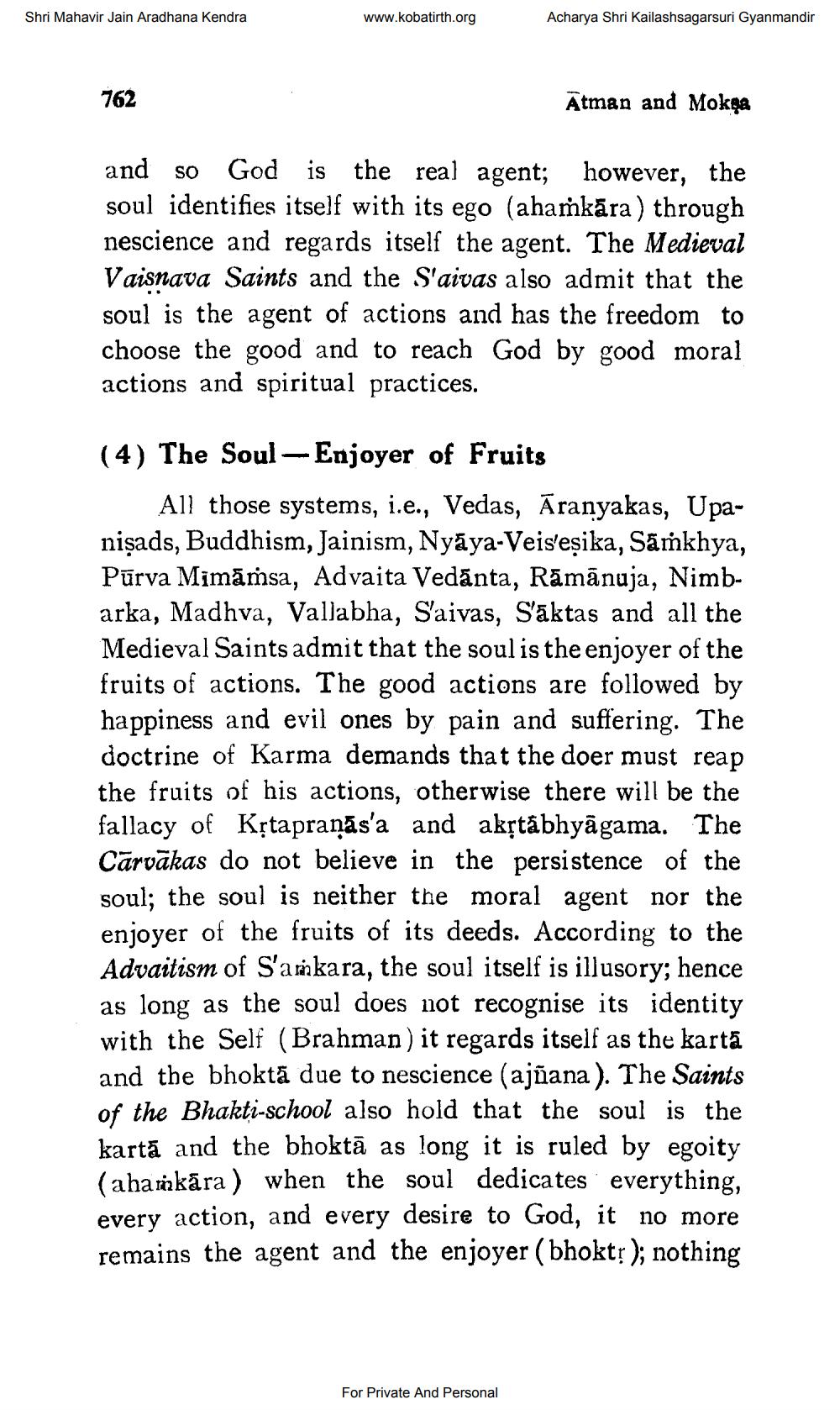________________
Shri Mahavir Jain Aradhana Kendra
762
www.kobatirth.org
Acharya Shri Kailashsagarsuri Gyanmandir
Atman and Mokga
and SO God is the real agent; however, the soul identifies itself with its ego (ahaṁkāra) through nescience and regards itself the agent. The Medieval Vaisnava Saints and the S'aivas also admit that the soul is the agent of actions and has the freedom to choose the good and to reach God by good moral actions and spiritual practices.
For Private And Personal
(4) The Soul-Enjoyer of Fruits
All those systems, i.e., Vedas, Aranyakas, Upaniṣads, Buddhism, Jainism, Nyāya-Veis'eṣika, Samkhya, Pūrva Mimāmsa, Advaita Vedānta, Rāmānuja, Nimbarka, Madhva, Vallabha, S'aivas, S'āktas and all the Medieval Saints admit that the soul is the enjoyer of the fruits of actions. The good actions are followed by happiness and evil ones by pain and suffering. The doctrine of Karma demands that the doer must reap the fruits of his actions, otherwise there will be the fallacy of Krtapranas'a and akṛtābhyagama. The Cārvākas do not believe in the persistence of the soul; the soul is neither the moral agent nor the enjoyer of the fruits of its deeds. According to the Advaitism of S'amkara, the soul itself is illusory; hence as long as the soul does not recognise its identity with the Self (Brahman) it regards itself as the kartā and the bhoktă due to nescience (ajñana ). The Saints of the Bhakti-school also hold that the soul is the kartā and the bhoktā as long it is ruled by egoity (ahamkara) when the soul dedicates everything, every action, and every desire to God, it no more remains the agent and the enjoyer (bhoktṛ); nothing




